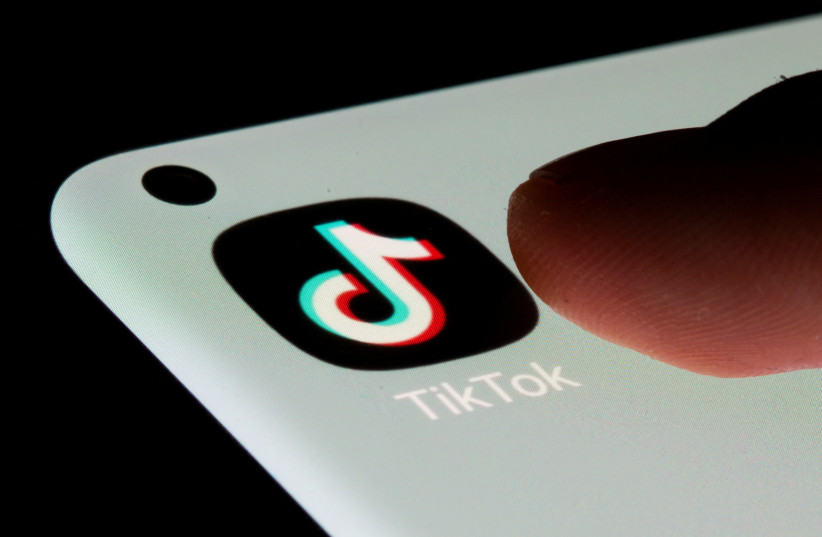A new phenomenon has taken the global workforce by storm known as "quiet quitting" - a new term where employees set boundaries with work-life balance, limit their workload and essentially just do the bare minimum of work.
In other words, quiet quitting is essentially about not letting your work overreach into your daily life and not doing more work than one is required.
The quiet quitting phenomenon can be seen as building off the Great Resignation, itself motivated partly by preexisting issues in the workforce as well as the COVID-19 pandemic. However, quiet quitting gained popularity through as one of the hottest TikTok trends.
But what is quiet quitting? What makes employees want to quietly quit and why has it suddenly become so popular? And what can employers do about it?
Here is what you should know.
What is quiet quitting?
The term quiet quitting doesn't refer to quitting one's job. The idea is that employees want to limit their workload and not let their job and managers control their lives outside work.
Essentially, quiet quitting is about making a healthy work-life balance.
<br>Is quiet quitting new?
The term quiet quitting is new, but the phenomenon isn't, and wanting a healthy work-life balance and only doing the bare minimum is an old concept.
However, the reason the term itself has become popular is TikTok.
The short-form video platform is well-known for its different trends. As part of this, TikTok trends sometimes essentially rebrand pre-existing phenomena, essentially giving a new name to something older. This can result in a surge of popularity and renewed interest.
So not only is quiet quitting old, you may have done it before.

Why are people quiet quitting jobs?
There are several reasons for the sudden surge in quiet quitting.
First, there are many of the same reasons behind the Great Resignation, which saw millions of workers in countries across the world quit their jobs.
The causes for both the Great Resignation and quiet quitting are often cited as job dissatisfaction, stagnant and low wages even as inflation climbs and the cost of living rises, feeling unappreciated at work, lack of opportunities for career advancement, desiring a better work-life balance and more control over schedules and overall burnout.
The mindset behind quiet quitting is as follows. Corporate culture in capitalist countries urges hard work, which can include doing work that isn't necessarily part of your job description or what is in your contract. However, workloads are often high, there often isn't any opportunity for career advancement and salaries stay stagnant or with minuscule raises despite global inflation and price hikes.
So if you're working with such a high workload all for low payment as everything gets more expensive with seemingly no chance at ever advancing in your career, all while feeling disrespected and undervalued by management, you may stop seeing the appeal of working so hard and might get burnt out, essentially only doing the bare minimum of what is required, or simply quitting entirely.
In fact, these three factors - no career advancement, feeling undervalued and disrespected and low wages - were the main reasons most Americans quit working in 2021, according to a Pew Research Center report.
Quiet quitting is often cited as a reaction to the hustle culture so prevalent in capitalist countries like the US. This culture helped make one's work encompass the entirety of one's life, often called "living to work." This contrasts "working to live," which sees working as just a means to live one's life.
Quiet quitting jobs and the COVID-19 pandemic
Due to the pandemic, millions of people worldwide couldn't to go to work, either due to lockdown restrictions, industry shutdowns or catching COVID-19.

Over time, remote work became more prevalent and widespread, thanks in large part to the popularity of services like Zoom, and the idea of working from home became appealing to many people.
But as restrictions were lifted, many employers wanted their workers to come back into the office either full-time or part-time, despite working from home's association with improved morale and fears of catching COVID at work.
In addition, COVID-19 can result in long-COVID, a debilitating condition that can make working and commuting harder.
This is all especially worse in the US, where weaker labor laws have resulted in sick days and vacation days not being guaranteed, managers and employers having greater discretion for firing employees and a very low minimum wage that is less than a living wage.
With all this in mind, it may not be too surprising that more people are becoming disillusioned with their jobs, working so hard only to get comparatively little in return.
Then, TikTok picked up on quiet quitting. TikTok's young userbase embraced the idea of not overworking and overextending yourself for your job, and many noted how the stress of hustle culture has harmed their physical and mental health.

The issues behind this have become widespread, but quiet quitting is just one of the many ways employees are dealing with the same set of problems.
For instance, there was the Great Resignation. But some workers have taken filing lawsuits at their employers, and others have taken to unionizing, such as at Starbucks.
<br>What are the signs of quiet quitting work?
Quiet quitting can manifest in a few different ways. Worker enthusiasm will likely be low. Employees may not be as active in contributing to projects and might refuse to voluntarily help out when needed, like filling in for someone or taking on additional duties without compensation.
Productivity might decline. Some employees may show up late and clock out early. They might refuse to work longer hours, especially without the promise of overtime pay. Employees might stop responding to emails, calls or messages after work hours.
It is important to note that these behaviors are not exclusive to quiet quitting. Some people are simply lazy and don't like working hard. However, that doesn't mean everyone quiet quitting work is lazy. There are reasons people quietly quit, and accusations of laziness may lead to further dissatisfaction.
How can businesses stop quiet quitting?
Overall, the biggest thing employers can do to fight quiet quitting is address the issues that have led to this in the first place.
Here are some examples:
- Finding ways to make employees feel valued, respected and appreciated
- Allowing for an appropriate level of work-life balance
- Valuing employees' physical and mental health and encouraging these values in others to avoid burnout
- Trying to find ways to advance their career and provide clear steps to do this
- Providing a reasonable workload
- Not expecting employees to step up and take on additional responsibilities without a raise, compensation or overtime
- Trying to provide benefits like sick days and vacation days
- Paying employees reasonable salaries above minimum wage that can keep up with inflation and rising prices.
